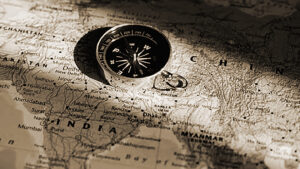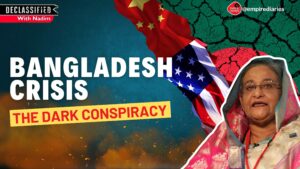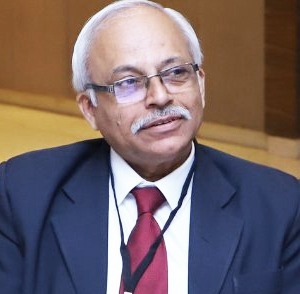The AstraZeneca Files
Dr. Amitav Banerjee
COLUMN/ THE WRITE LINE
Over the past several days, two events shook up the tired horses in the Covid-19 marathon. Having been forced to trot a marathon at the speed of a sprint, they had given up the race and were resting their tired bones. The punters and the crowd lost interest in this race as it dragged on. All of the “variants of concerns” on which they had placed huge odds had disappointed. It seemed their money and bets went in vain. But at least there seemed to be no harm. But the consolation too was short-lived.
The first jolt was the admission by AstraZeneca, a Cambridge-headquartered pharma giant, in a UK court that its Covid-19 vector-based vaccine, which is marketed as Covishield in India, could, in “rare” instances, cause TTS, or “thrombocytopenia thrombosis syndrome”.
TTS causes platelets in the blood to clump and form clots, which can block blood supplies to the heart (causing heart attacks) or the brain (leading to stroke). While the epicentre of this confession was the UK, the shockwaves were felt here in India, where over 100 crore unsuspecting people had received this vaccine.
While still coping with this disturbing news, a further aftershock was the announcement a few days later by AstraZeneca that it is recalling the vaccine. The news sparked panic on social media that the product was being withdrawn because of serious concerns about health risks. The manufacturer of the vaccine claimed that the withdrawal of its product was entirely due to commercial considerations because of a steep decline in demand for this vaccine, often referred to as the AZ shot.
The uncanny start
The AZ vaccine was never approved in the US. Was it due to mishaps during the AstraZeneca vaccine trials in that country? A volunteer in one of the vaccine-trial centres in the US, Brianne Dressen, had a harrowing experience after taking the jab.
A former rock climber, she was severely incapacitated after taking the jab. Her vision and hearing were distorted, she had severe heart-rate fluctuations, severe muscle weakness, and had a sensation of internal electric shocks.
She had to spend most of her time in a darkened room, unable to brush her teeth, or tolerate the touch of her children. Later, she came across other people who had never suffered from Covid-19 but experienced serious and long-lasting health problems after taking the coronavirus vaccine.
Researchers were non-communicative. Avindra Nath, the lead investigator, conceded that her injury could be due to the vaccine, but fell short of accepting a “cause-effect” relationship. What dismayed the sufferers of these symptoms post-vaccination was the pullback by the investigators as communications with these patients dwindled by late 2021.
One wonders whether such mishaps during the trials in the US could be the reason for the AstraZeneca not being approved there.
Other developed countries also cold-shouldered the AstraZeneca vaccine, which was developed by Oxford University in the UK with Swedish collaboration. A peer-reviewed paper in the journal Vaccines established from real-world data that the odds of developing TTS or blood clots was four to six times higher with the AZ shot compared to Pfizer’s Covid vaccine, and four to 10 times higher compared to the Moderna vaccine.
In March 2021, in response to spontaneous reports of blood clots among individuals who received the Oxford-AstraZeneca vaccine, several European countries halted the use of this jab.
While such concerns were coming out during the trials in the US and at the same time real-world data was emerging from Europe, AstraZeneca entered into partnership with SII (Serum Institute of India, Pune) to scale up production of the vaccine, labelled as Covishield for Indian recipients.
Essentially, America passed on the parcel to Europe, which eventually passed it on to India. And that’s when the music stopped!
The Indian irony
Trials and real-world data in the West established that such serious events from the AstraZeneca shot were more common among the young. In response, the UK restricted its use among people below 40 years early into the mass rollout before phasing it out completely.
India, sadly, succumbed to the promotion of the vaccine.
India is a country with a large young population. Around three-fourths (75%) of its population is below 40 years of age. A paper in the Journal of Medical Ethics says administering Covid-19 vaccines to the young is not ethical as it may result in a net harm.
In a country of over 140 crore people with around 75% of the population below 40 years as a ballpark estimate, we have administered the Covishield vaccine to around 80 crore young Indians who were at least risk from Covid-19 and at higher risk of adverse events.
Early into the coronavirus pandemic, it was established that the infection-fatality rate of the virus was in the range of 0.00% to 0.05% among people below 70 years, tending towards zero among the youth. Moreover, by the time vaccines were rolled out among the young, serosurveys showed that over 80% of the young had already recovered from natural infection, adding to their robust immunity.
The great Indian irony is that our policymakers got it right early on. Dr. NK Arora, head of India’s NTAGI (National Technical Advisory Group on Immunisation), wrote an opinion piece on April 12, 2021 in the Times of India, titled, ‘Opening up vaccines for younger adults (18 to 45 years) right now will be a gamble with lives’.
However, India’s policymakers lost the way as political and commercial pressures piled up.
The damage done
Andrew Bridgen, a British MP, recently gave a statement in the UK parliament based on extensive research and study of scientific journals. He summarised the incidence of serious injuries from Covid-19 vaccines as around 1-in-800.
So, even on a conservative estimate, if we take that 100 crore Indians were given Covid vaccines, around 12.5 lakh citizens, 75% of them young, might have suffered from serious adverse events, including deaths. Most of them went unnoticed and unreported.
With our poor system of Adverse Events Following Immunisation (AEFI reporting), we are unable to capture even a fraction of the adverse events. According to a peer-reviewed paper, we are able to report only 1% of the deaths caused by Covid-19 jabs.
The safety of Covid vaccines was promoted with such force that even leading experts in vaccine science have difficulty in reporting vaccine injury, as reported by The New York Times.
Dr. Gregory Poland, 68, who is the editor-in-chief of the journal, Vaccine, said a loud whooshing sound in his ears accompanied every moment since his first shot, but that his entreaties to colleagues at the CDC (Centers for Disease Control and Prevention in the US) to explore the phenomenon, tinnitus, has led nowhere.
He received polite responses to his many emails, but “I just don’t get any sense of movement,” he said. “If they have done studies, those studies should be published,” Dr. Poland added. In despair that he might “never hear silence again,” he has sought solace in meditation and faith!
If this is the ordeal of a vaccine-injured editor of a leading medical journal on the subject in a developed country with better reporting of adverse events, one can only imagine the fate of those who have suffered or died due to the vaccine in India.
The ‘benefits’ narrative
In spite of overwhelming evidence on the contrary, our experts continue to parrot that while adverse events including deaths are rare, the benefits of the vaccine outweigh the miniscule risk. They support this claim based on mathematical model studies sponsored by Gates Foundation, among others, with serious conflicts of interest.
Real-world studies show no correlation between vaccination coverage and incidence of Covid-19, while data in public domain show rise in cases as well as deaths from Covid-19 after the introduction of mass vaccination.
For illustration, the cases and deaths before and after mass vaccination are illustrated below for Israel and Singapore. Similar phenomenon has been observed in Australia, Sri Lanka, Japan, US, UK, Indonesia, Malaysia, and many other countries.
A presentation on this paradox was made a couple of months ago at a session hosted by AIIMS New Delhi (All India Institute of Medical Sciences) with a request to send a counterview supported by data. No rebuttal has been received yet. I leave it to the reader to decide whether the benefits from the Covid jab outweigh the risks.
Explained: Vaccine inefficiency in 4 charts
COVID VACCINATION NUMBERS AND COVID CASES IN ISRAEL, SINGAPORE, AUSTRALIA, AND TAIWAN




(Dr. Amitav Banerjee is a renowned Indian epidemiologist and a professor at a medical college in Pune. He served as an epidemiologist in the armed forces for over two decades. He was recently featured on Stanford University’s list of the world’s top 2% scientists. He authored the book, Covid-19 Pandemic: A Third Eye, and has delivered keynote addresses at national and international forums).
The column reflects the author’s opinions and not necessarily those of Empire Diaries.
COPYRIGHT & REPUBLISHING TERMS:
All rights to this content are reserved with Empire Diaries. If you want to republish this content in any form, in part or in full, please contact us at writetoempirediaries@gmail.com.
ALSO READ…









